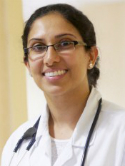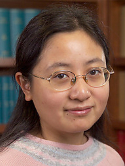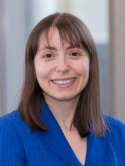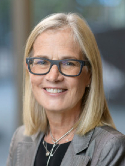Pathogenic germline variants in patients with endometrial cancer of diverse ancestry Journal Article
| Authors: | Liu, Y. L.; Gordhandas, S.; Arora, K.; Rios-Doria, E.; Cadoo, K. A.; Catchings, A.; Maio, A.; Kemel, Y.; Sheehan, M.; Salo-Mullen, E.; Zhou, Q.; Iasonos, A.; Carrot-Zhang, J.; Manning-Geist, B.; Sia, T. Y.; Selenica, P.; Vanderbilt, C.; Misyura, M.; Latham, A.; Bandlamudi, C.; Berger, M. F.; Hamilton, J. G.; Makker, V.; Abu-Rustum, N. R.; Ellenson, L. H.; Offit, K.; Mandelker, D. L.; Stadler, Z.; Weigelt, B.; Aghajanian, C.; Brown, C. |
| Article Title: | Pathogenic germline variants in patients with endometrial cancer of diverse ancestry |
| Abstract: | Background: Racial disparities in outcomes exist in endometrial cancer (EC). The contribution of ancestry-based variations in germline pathogenic variants (gPVs) is unknown. Methods: Germline assessment of ≥76 cancer predisposition genes was performed in patients with EC undergoing tumor-normal Memorial Sloan Kettering Cancer Center Integrated Mutation Profiling of Actionable Cancer Targets sequencing from January 1, 2015 through June 30, 2021. Self-reported race/ethnicity and Ashkenazi Jewish ancestry data classified patients into groups. Genetic ancestry was inferred from Memorial Sloan Kettering Cancer Center Integrated Mutation Profiling of Actionable Cancer Targets. Rates of gPV and genetic counseling were compared by ancestry. Results: Among 1625 patients with EC, 216 (13%) had gPVs; 15 had >1 gPV. Rates of gPV varied by self-reported ancestry (Ashkenazi Jewish, 40/202 [20%]; Asian, 15/124 [12%]; Black/African American (AA), 12/171 [7.0%]; Hispanic, 15/124 [12%]; non-Hispanic (NH) White, 129/927 [14%]; missing, 5/77 [6.5%]; p =.009], with similar findings by genetic ancestry (p <.001). We observed a lower likelihood of gPVs in patients of Black/AA (odds ratio [OR], 0.44; 95% CI, 0.22–0.81) and African (AFR) ancestry (OR, 0.42; 95% CI, 0.18–0.85) and a higher likelihood in patients of Ashkenazi Jewish genetic ancestry (OR, 1.62; 95% CI; 1.11–2.34) compared with patients of non-Hispanic White/European ancestry, even after adjustment for age and molecular subtype. Somatic landscape influenced gPVs with lower rates of microsatellite instability-high tumors in patients of Black/AA and AFR ancestry. Among those with newly identified gPVs (n = 114), 102 (89%) were seen for genetic counseling, with lowest rates among Black/AA (75%) and AFR patients (67%). Conclusions: In those with EC, gPV and genetic counseling varied by ancestry, with lowest rates among Black/AA and AFR patients, potentially contributing to disparities in outcomes given implications for treatment and cancer prevention. Plain Language Summary: Black women with endometrial cancer do worse than White women, and there are many reasons for this disparity. Certain genetic changes from birth (mutations) can increase the risk of cancer, and it is unknown if rates of these changes are different between different ancestry groups. Genetic mutations in 1625 diverse women with endometrial cancer were studied and the lowest rates of mutations and genetic counseling were found in Black and African ancestry women. This could affect their treatment options as well as their families and may make disparities worse. © 2023 American Cancer Society. |
| Keywords: | adult; major clinical study; genetics; cancer staging; outcome assessment; endometrial cancer; endometrial neoplasms; endometrium cancer; genetic analysis; phenotype; cancer susceptibility; germ cell; cohort analysis; self report; germ cells; microsatellite instability; trend study; endometrium tumor; ethnicity; african american; genetic testing; caucasian; genetic counseling; race; hispanic; white; disparities; ancestry group; humans; human; female; article; black person; ancestry; hispanic or latino; germline finding |
| Journal Title: | Cancer |
| Volume: | 130 |
| Issue: | 4 |
| ISSN: | 0008-543X |
| Publisher: | Wiley Blackwell |
| Date Published: | 2024-02-15 |
| Start Page: | 576 |
| End Page: | 587 |
| Language: | English |
| DOI: | 10.1002/cncr.35071 |
| PUBMED: | 37886874 |
| PROVIDER: | scopus |
| PMCID: | PMC10922155 |
| DOI/URL: | |
| Notes: | The MSK Cancer Center Support Grant (P30 CA008748) is acknowledged in the PDF -- Corresponding author is MSK authors: Ying L. Liu -- Source: Scopus |
Altmetric
Citation Impact
BMJ Impact Analytics
MSK Authors
-
 270
270Makker -
 792
792Offit -
 167
167Brown -
 903
903Abu-Rustum -
 398
398Stadler -
 257
257Zhou -
 368
368Iasonos -
 616
616Aghajanian -
 781
781Berger -
 82
82Salo-Mullen -
 108
108Kemel -
 646
646Weigelt -
 114
114Hamilton -
 46
46Sheehan -
 188
188Mandelker -
 194
194Selenica -
 110
110Liu -
 142
142Vanderbilt -
 62
62Latham -
 82
82Bandlamudi -
 20
20Catchings -
 113
113Ellenson -
 36
36Maio -
 13
13Misyura -
 35
35Rios-Doria -
 47
47Gordhandas -
 28
28Arora -
 31
31Sia -
 21
21Carrot-Zhang
Related MSK Work




